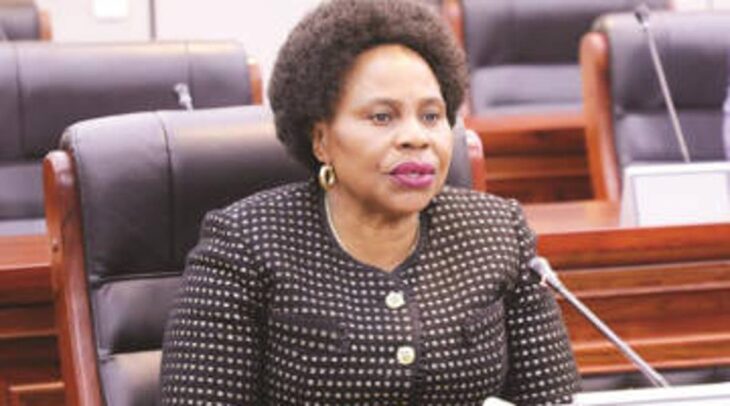The Government of President Emmerson Mnangagwa yesterday said it had not yet made a decision on the COVID-19 vaccine to buy, although it said that it had mobilised a US$100 million war chest for fighting the global pandemic.
Information minister Monica Mutsvangwa during a post-Cabinet media briefing in Harare yesterday said this, adding that the Executive had agreed that it would take its time to ultimately make the decision on which vaccine to import to vaccinate citizens against the novel coronavirus.
“In that regard, Cabinet endorsed the following key guidelines: that Zimbabwe’s vaccination programme, in particular the choice of vaccines, needs to be science-based, with adequate researches and findings guiding decision-making and the course of action,” said Minister Mutsvangwa.
“Zimbabwe will take decisions independently in the national interest, without undue influence,” she said. This comes amid reports that neighbouring South Africa had suspended the planned roll out of AstraZeneca vaccine after realising that its efficacy to immunise against the second strain of COVID-19 in that country was much lower, although it could help prevent severe disease, hospitalisations and death.
The global respiratory disease had as of yesterday killed 1 353 Zimbabweans and infected over 34 000 others. There have been concerns that the government was taking long to inform the nation about the choice of drugs that it would procure, with pressure groups urging it to shun Chinese vaccines.
However, the government said it would not be rail-roaded into making rash decisions.
The country plans to vaccinate 10 million people and has already accepted a donation of 200 000 doses of Sinopharm vaccines from China, which are expected in Zimbabwe next week.
The government has also said that during the roll out of the vaccination programme, health workers, the elderly and other vulnerable groups would be prioritised.
Corporates will also be allowed to procure vaccines for their staff provided they cede 50% to the government.
“The private sector will also support government through a formula that they will keep 50% of what they procure for their employees,” Mutsvangwa said.
Meanwhile, Health and Child Care deputy minister John Mangwiro said the COVID-19 vaccine would be taken on a voluntary basis.
“The vaccine will be free of charge and only those willing will receive it, but we strongly urge people to take the vaccine. We already have structures that we have previously used for other vaccination programmes like polio, and these are still in place.
“We will need a lot of data. We will also collect blood to check for antibodies to COVID-19 in the participants, and also to check if they had the disease at the time of the test.
“We need people to be ready to give the information which will also be critical when getting the second dose, which is administered around 30 days after the first dose,” Mangwiro said.
He also said that while those not willing to take the vaccine would not be forced, empirical scientific evidence had proved that vaccination against COVID-19 was a better option in fighting the respiratory disease.




